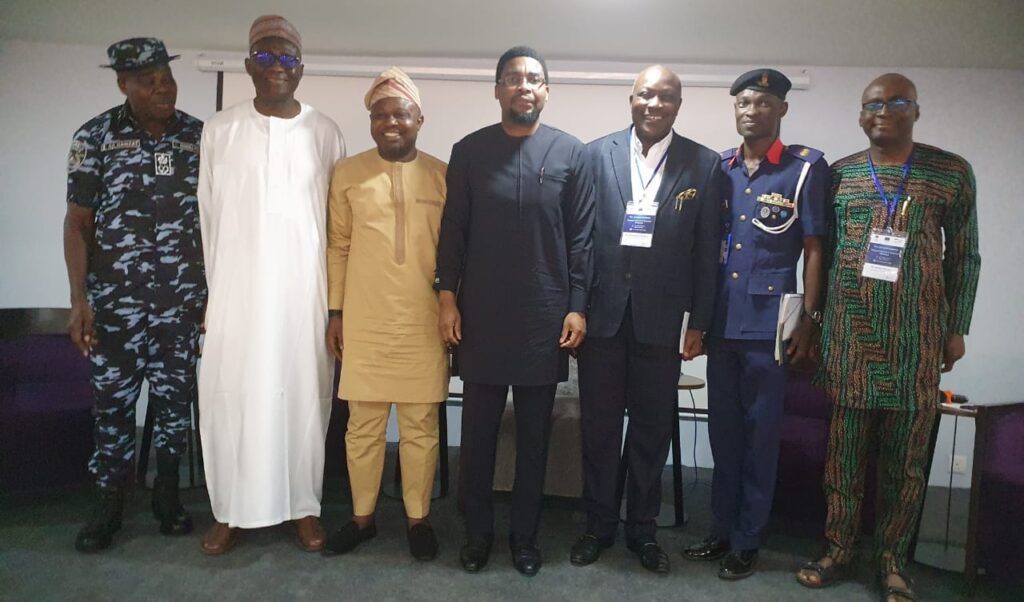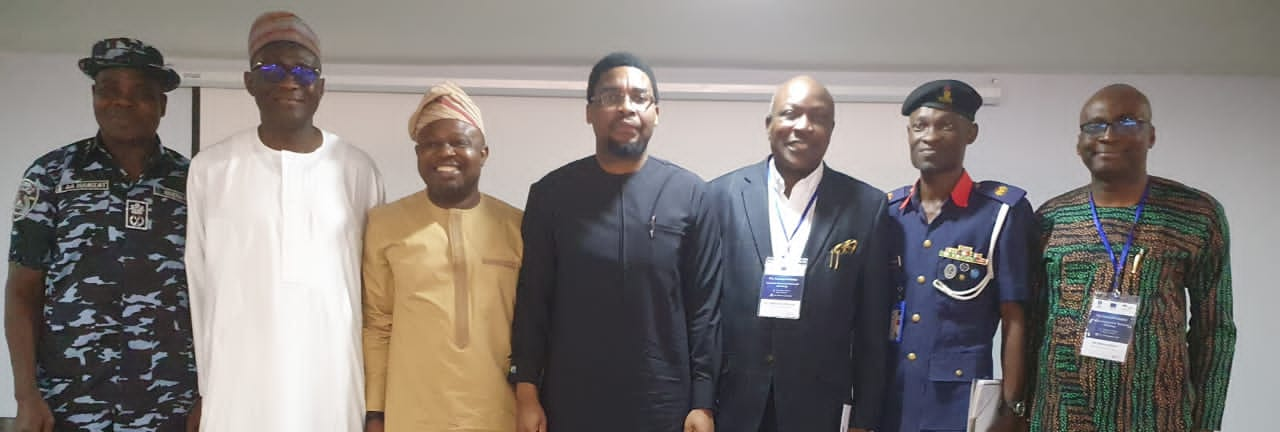OSPRE charges stakeholders in preparedness for early warning, disaster management
Maureen Okpe
The Office for Strategic Preparedness and Resilience (OSPRE), a center for the coordination of early warning and response mechanisms in Nigeria has charged stakeholders to collaborate as well as put in place measures that ensure rapid response to issues that constitute a threat to human security.
Director General OSPRE, Chris Ngwodo who gave the charge at the end of the two-day inaugural summit and technical workshop of the concord initiative in Abuja noted that, to mitigate the continuous outcry of inefficiency government needs to work in collaboration with the civil organization as they cannot carry out the duty of safeguarding citizens alone.
Ngwodo noted a need for concerted efforts to make provisions to avert a situation that will evolve into a full-scale disaster.
The Director General while disclosing the framework of the center said, “our approach is very much collaborative, we tend to cast the net of partnership very wide. Embracing everybody, both nongovernmental actors and government.
“The point of early warning is to galvanize early responses usually to prevent or mitigate risk before it becomes a full-blown conflict or some adverse outcome for society.
“The office for strategic preparedness and resilience as Nigeria’s Early Warning Center identifies and addresses threats to human security to enable the government and relevant authorities to anticipate, therefore being able to raise alerts before incidents happen.”
He added: “Government has to collaborate with civil society, to bridge the gap between the warning issued out and how to go about the response. This is where the role of OSPRE comes in, to bridge the gap between civil society and state actors.
“We have to do it nationwide or for it to be truly national, we have to also engage established partnerships with various organizations, at local and state levels because we understand that we need to cascade our cooperation down to the communities.”
Speaking further he noted that, “one of the issues that the Concord Initiative is trying to address in terms of bringing all these actors together, It’s to acquaint different actors with the work that they are doing, and ultimately, to ensure that we are not duplicating our efforts, wherever an organization’s competitive advantage is, it should go into that area.
“And then we can provide some support, and also allocate our resources more efficiently rather than duplicating, also to allow peer to peer exchange of knowledge, experience, perspectives, and eventually to be able to pool resources.
Similarly, the Superintendent of the Corps, Research Officer, Peace and Conflict Resolution Department NSCDC, David Adediran reiterated the need for a working network to respond to early warning.
Adediran said, “Peacebuilding is multi-dimensional. Over the years there has been a loggerhead between CSOs and security outfits on implementation ability, overtime capacity building has resolved the argument.
“Every actor needs to work together as a network to ensure that the country is safe. As if the dispute is mitigated at the point of the civil war it will not escalate to full-blown violence, this is the beauty of early warning and early response.”
On his part, Editor-in-Chief of Global Sentinel, Senator Iroegbu while speaking on the reasons for government inadequacy in ensuring a rapid response asserted that some of the key factors in Nigeria is the lack of political will by the leaders. He stated the political circle plays a major role in this effect, adding, the rivalry between agencies and poor infrastructure create a gap to this effect.
Ireogbu said, “most times they are either not interested or the area of potential conflict is not of priority to them or of no consequence to their political standing. Similar to this is the lack of funding for early warning and early response agencies. This is also linked to the issue of lack of political will because if the leaders don’t prioritize this they won’t allocate enough funds to it.
He continued: “Also the issue of bureaucratic, administrative, and structural problems. Most times our security, policing and response system or agencies are over-centralized and the time it takes between decisions, approval, and eventual response affects the rapidness. The issue of infrastructure like poor road networks, lack of adequate equipment, etc could be an impediment.
“Also crucial is the lack of capacity amongst the response agencies and actors. There is also the nagging case of lack of coordination amongst the response agencies and inter-agency rivalry.

Some of the topics discussed at the two-day workshop include: Bridging the Gap between Early Warning & Early Response Actors presented by the OSPRE DG, Chris Ngwodo; Practical Perspectives from the Field of Early
Warning & Peacebuilding presented by the Director General, Plateau State Peacebuilding Agency, Dr. Joseph Lengmang; and Forging Synergy in the Early Warning Sector, presented by the Country Director, International Alert, Dr. Paul Nyulaku.
Among the Panel of discussants include Senator Iroegbu (Editor-in-Chief, Global Sentinel) who moderated a session; Dr. Ukoha Ukiwo (Technical Lead, Managing Conflict in Nigeria); Brig. Gen. Saleh Bala () (CEO, White Ink Institute for Strategy Education & Research, WISER); Dr. Emmanuel Ojukwu, (Provost, Police Public Relations School & member, Anambra State Truth, Justice and Peace Commission); and Superintendent of the Corps, Research Officer, Peace, and Conflict Resolution Department NSCDC, David Adediran
Others are Dr. Inya Ode (Project Coordinator, Network and Advocacy Group, Lux Terra Leadership Foundation) who moderated other sessions; Dr. Joseph Ochogwu (Director of Research, Institute of Peace and Conflict Resolution, IPCR); Dr. Marclint Ebiede (Director, of Conflict Research Network, (CORN) West Africa; and Zigwai Ayuba (National Expert Adviser on Conflict Early Warning & Early Response, Centre for Humanitarian Dialogue). We also have Professor Magdalene Dura (Special Adviser to the Governor of Benue State on Development Cooperation, SDGs & NEPAD; Lead, Benue State Peace Commissioner); Dr. Ebimboere Seiyefa, (Head of Research, Conflict Research Network, West Africa & Lecturer, International Relations, Baze University); and Andy Nkemneme (National Conflict & Policy Analyst, Search for Common Ground).

